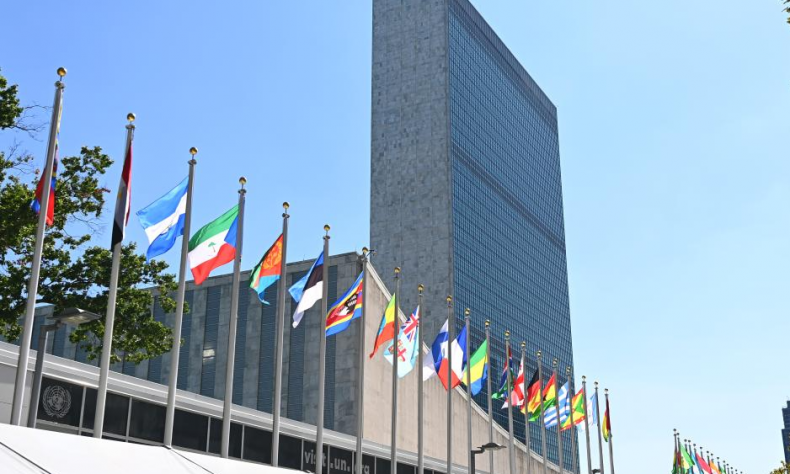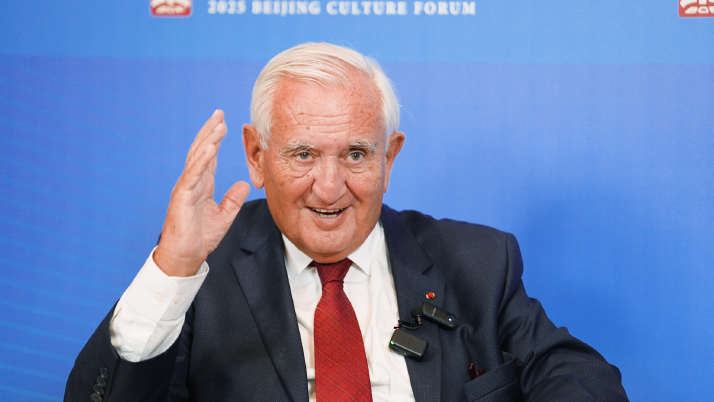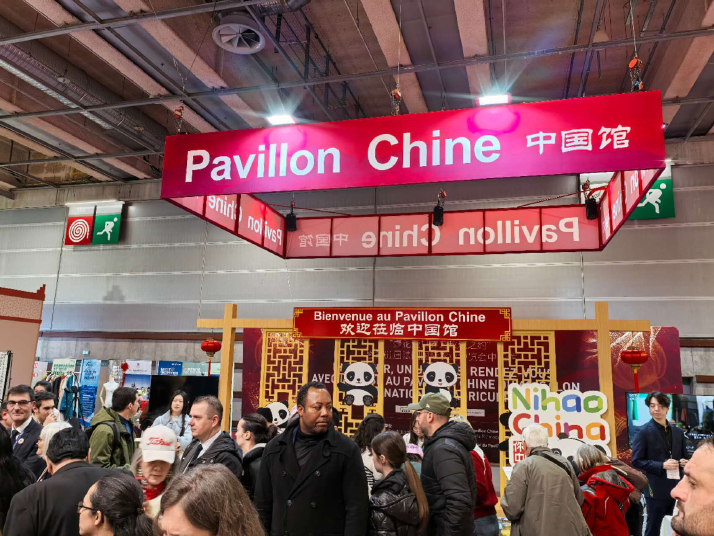Inclusive by Design

It is very clear that real progress will only be possible when the global situation becomes calmer. Today, tensions are too severe to foster broad cooperation among all parties. I believe that the top priority now is to resume peace.
October 24 was the 80th anniversary of the founding of the United Nations. In an interview with Beijing Review reporter Li Nan on the sidelines of the Beijing Culture Forum on September 23, Jean-Pierre Raffarin, former Prime Minister of France and the French Government’s special representative for China affairs, shared his insights on how to address global governance challenges. Edited excerpts from their conversation follow:
Beijing Review: This year is the 80th anniversary of the UN’s founding. How do you think countries should reform and improve the current global governance system? What roles can China and France play in this process?
Jean-Pierre Raffarin: This is a difficult subject. Today, the world is tense and dangerous. In this context, it is essential that France and China work together to advocate world peace. Both the Chinese and French peoples consider peace a top priority in global governance. The Chinese people have never waged war beyond their own borders. They have only fought when they were attacked on their own land. The Chinese are peace-loving people. The French people, after the horrors and tragedies of World War II, no longer wish to repeat those.
Since 1945, the world has changed dramatically. We can see that some countries, such as the United States, have paralyzed the World Trade Organization to some extent. Yet global trade organizations are indispensable. The rule of law must be strengthened worldwide in a bid for violence and brutality to recede. We also see that today’s political discourse is becoming increasingly harsh. A major power like the U.S. is pursuing unilateral tariffs and protectionist policies.
I think it is very important to reach a consensus acknowledging that international institutions are largely paralyzed and that, in particular, the UN Security Council can no longer properly fulfill its responsibility to maintain peace. Multilateralism must be renewed. Also, international organizations must be transformed so that a new, shared multilateralism can make global governance function effectively—especially in maintaining world peace.

We must open the discussion on the future of global governance and the new multilateralism as soon as possible. We need to create new rules. We must restore consultation, dialogue and a spirit of universal respect. To this end, we need an international legal system developed through discussion and negotiation, but also one that adapts to the modern world—one that gives a rightful place to Africa, which the old system did not, and to the Global South, which remains underrepresented today. Every nation should be able to find its rightful place on the world stage.
Chinese President Xi Jinping proposed the Global Governance Initiative at the “Shanghai Cooperation Organization (SCO) Plus” Meeting in Tianjin, a port city in north China, on September 1. What’s your take on this initiative?
Indeed, I believe that some principles must be respected. President Xi Jinping, by defending these principles, is prompting people’s reflection on the new multilateralism.
I notice that, in recent years, both the Chinese and French presidents have been the most active leaders in putting forward proposals for a new world order, with goals all rooted in multilateralism. I think it is very important for France and China to make concerted efforts for the future of the new multilateralism.
However, it is very clear that real progress will only be possible when the global situation becomes calmer. Today, tensions are too severe to foster broad cooperation among all parties. I believe that the top priority now is to resume peace.
We hope that all major powers can take part in the pursuit of peace—peace in Europe, of course, but also peace on other continents affected by war. To realize the visions put forward at major international gatherings, including the SCO meeting, tensions must first be eased; only in a peaceful environment can these prospects take shape and grow stronger.
How do you view China’s efforts to improve the system of global governance?
First of all, I would like to commend the achievements of China and the Chinese people in recent years. I first came to China more than 50 years ago. I have seen China build itself up and witnessed the courage of its people, who have built their country into a modern one in a remarkably short time. I want to express to all my Chinese friends my deep respect for China’s development, which has helped reduce poverty worldwide.

In this context, China has acquired a new position in international relations. China is contributing to the renewal of global governance with its traditional values and great civilization. We know very well that in the years to come, China will play a pivotal role in maintaining world balance. That is why its culture of peace is so important to us and why this great civilization deserves respect, just as our own great European civilization must also be respected.
I believe that France and China share this vision of multilateralism, which requires dialogue among peoples and civilizations that respect one another, rather than judge one another. In this sense, China’s international role is very important for opening up hopeful prospects for the future.
What influence can the China-France relationship have on China-Europe relations and, more broadly, on global governance?
I have long believed that the core of the Franco-Chinese relationship lies in culture. Our two peoples are open to exchange, open to poetry, to culture and to all forms of art. Culture plays an essential role in our relations. That is why our two countries have a very fertile vision of cultural exchange—because it helps foster mutual understanding between peoples.
However, our different cultures also contain many differences. Philosophers have studied these gaps, and we see that such differences arouse people’s curiosity and encourage deeper mutual understanding. I believe that France and China share broad common visions concerning the evolution of the world, the need to protect our planet, as well as values tied to defending humanity and respecting diversity.
France and China have a long-standing and profound relationship based on mutual respect. I think they should strive to be exemplary in improving relations between Europe and China. The Franco-Chinese relationship can serve as a model for the future of Europe-China relations.
Naturally, Europe is a complex world—a cooperative union of states rather than a single country—so negotiations and diversity are inevitable. That is why, in this context, the Franco-Chinese relationship must serve as a model of respect, cooperation and frank dialogue on differences—and, at its core, as a constructive driver for the future of humanity and for the pursuit of peace in a world that has become increasingly perilous.
 Facebook
Facebook
 Twitter
Twitter
 Linkedin
Linkedin
 Google +
Google +










